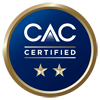Risk
The company risks damaging its reputation and image if suppliers neglect or conduct business without due consideration for the environment, society, and governance. Such negligence could be perceived as the company playing a role in endorsing irresponsible business practices, including violations of human rights, the use of child or illegal labor, and engagement that result in environmental pollution.
Opportunity
Opportunity arises when the company prioritizes and fosters an understanding of Environmental, Social, and Governance (ESG) factors among its suppliers. This commitment leads to ongoing collaboration between the company and its suppliers, instilling confidence in stakeholders regarding the delivery of high-quality products and services. Moreover, it underscores the company's responsibility towards sustainability across multiple dimensions.
The Company advocates for its suppliers to manage their operations responsibly, adhering to principles of good corporate governance. This extends beyond countering corruption, respecting human rights, and considering societal and environmental impacts. This commitment goes beyond the confines of the Company itself. It encompasses the management of supply chains and the procurement of services from suppliers who exhibit sustained operational standards. The selection of suppliers is based on their adherence to service quality, covering considerations for the delivery of products and services that minimize environmental impact (Green Procurement). The Company is dedicated to fostering sustainable growth collectively, guided by strategic operational approaches as follows:
supply chain management
awareness of sustainable business
practices among suppliers
products
The Company stipulates a clear policy and guidelines that address economic, social and environmental issues so that they can be used as criteria for supplier selection and consideration of supplier(1) qualifications in its procurement or engagement or use of services as follows:
Business Partners Policy
The Company adheres to the criteria and guidelines for utilizing services from business partners, aligning with the standards set by the Bank of Thailand and Krungthai Bank. These policies are periodically reviewed to ensure their suitability for business operations. The policies cover various aspects, including:
- Roles, Responsibilities, and Accountability in Utilizing services from Business Partners.
- Criteria and Terms for Utilizing Services from Business Partners.
- Selection and Inspection of Service Delivery.
- Terms of the Service Contract
- Guidelines aligned with the Anti-Corruption policy, encompassing prevention and suppression of money laundering, financing terrorism, and the proliferation of weapons of mass destruction.
- Monitoring, Supervising, and Risk Management.
- Relevant Forms for Managing Risks Associated with Utilizing Services from Business Partners
- Records of Agreements between the Company acting as the Data Controller and Business Support Service Providers and Partners acting as Data Processors (Data Processor Agreement).
Procurement procedure
The Company establishes procurement regulations, which encompass supplier selection methods, authority for procurement approval, inspection procedures for the delivery of goods or services, and more. These regulations serve as standards for consideration and guidelines on procurement operations within the specified scope of authority related to procurement roles defined in this regulation.
Supplier Code of Conduct and Confidentiality Agreement
The Company furnishes a supplier Code of Conduct and confidentiality agreement for its suppliers. This is indicative of the Company's intent to engage in business with suppliers who pledge to conduct their business activities in alignment with legal requirements, corporate ethics, information confidentiality, and international standards. The scope and guidelines encompass the following issues:
- Business Ethics and Legal Compliance
- Human Rights and Labor
- Occupational Health and Safety
- Environment
- Information Confidentiality
(Please refer to additional information in https://ktc.co.th/en/sustainability-development/corporate-governance under “KTC Supplier Code of Conduct and Confidentiality Agreement” topic.)
Remark : Supplier(1) consists of business partner* and general supplier. For more details about supplier classification, Please refer to sub topic “Risk Management of Business Partner and Supplier.
Classification of Suppliers
The Company categorizes suppliers into two
main types:
1. Outsources refer to business partners as
defined in the Business Partners Policy of
the Bank of Thailand. These include legal
entities or individuals who have entered
into contracts or agreements with the
Company to provide services, acting either
as business partners operating on behalf of
the Company.
2. General Suppliers refer to vendors or
service providers to KTC that have minimal
or negligible impact on the core business
operations or pose low risk.
Criteria for Identifying Key Suppliers
The Company establishes criteria for identifying key suppliers, encompassing suppliers hired through intermediaries, clearly defined according to job categories and expenditure levels, as follows:
Suppliers Selection
The Company has established practices for supplier selection, applicable in cases of new hiring, contract renewal, annual evaluation, and/or new job specifications. These practices entail varying criteria depending on the supplier group, with examples of criteria used for consideration, such as:
Suppliers Registration
Upon successful completion of the selection
process, suppliers will receive a
registration form from the Company, along
with documents outlining KTC supplier code
of conduct and confidentiality agreement.
These materials serve as guidelines for
operation. Suppliers must acknowledge and
sign the KTC supplier code of conduct and
confidentiality agreement.
In this regard, exempted are certain
supplier groups, such as modern trade
businesses or small-scale suppliers dealing
with miscellaneous items that are of minor
importance to the company's services.
Suppliers Procurement
The procurement process adheres to established procurement regulations, ensuring transparent and fair acquisition of goods and services. The process is open to scrutiny, with considerations given to various aspects such as quality, environmentally friendly products, and service delivery to minimize impact. (Green Procurement)
-
Risk identification
The Company has process to identify risks related to suppliers through annual supplier risk self-assessment. These potential risks encompass economic, social and environmental risk issues. Examples include

- Service quality risk and product or service delivery risk
- Data security protection
- Business continuity management
- Corporate governance risk
- Product or Service Quality and Delivery
- Data security maintenance
- Business Continuity Management
- Corporate Governance
- Modifications or early termination of contracts
- Compliance with labor law
- Human right violation
- Safety
- Compliance with Supplier Code of Conduct
- Compliance with labor laws
- Non-violation of human rights
- Workplace safety
- Compliance with environmental law
- Environmental risk
- Compliance with environmental laws
The Company has a supplier risk management process that addresses each type of supplier as follows:
Outsources: The Company conducts an annual
self-assessment of the risks associated with
utilizing services from outsources. This
evaluation considers the levels of risk and
the quality of risk management in various
aspects, including:
Operational Risk Management involves
evaluating actions taken in the selection,
monitoring, and performance review of
outsources.
o Customer Protection Measures encompass
implementing safeguards, ensuring data
security guidelines, addressing complaints,
and managing and resolving issues for
customers.
o Implementation of Business Continuity
Management and Testing
Suppliers: The Company conducts assessments
of adherence to supplier code of conduct and
business practices, which include scopes and
practices covering:
- Business ethics
- Human rights and labor
- Occupational health and Safety
- Environment
- Legal and regulatory requirements
- Financial status
- Operation under the principles of corporate governance and legal compliance and respect for human rights.
- Business practices as per rules set by concerned authorities.
- Business partner’s* relationship with the Company’s directors or executives
- Protection of customer data
- Identify process, procedure, information and/or information system.
- Identify where risks occur.
- Identify risk causes and factors.
- Identify risk control measures.
- Risk level and quality of risk management
- Operational risk management
- Customer protection measures
- Business continuity management and corporate governance, social and environmental risks etc.
- Business ethics
- Human rights and labor
- Occupational health and safety
- Environment
- Law and regulation
Risk Management and Control
Risk management and risk mitigation measures
The Company has established measures for managing and controlling risks that may arise from suppliers, including:
to serve as a guideline for compliance with the code of conduct prior to becoming a supplier of the Company.
to emphasize risk assessment and control, with regular monitoring and inspection of business partner operations. This includes overseeing business continuity and customer service provision. Also, it is stipulated as part of the contract for outsource services that auditors have the right to inspect their operations.
considering factors such as price, quality, delivery of products and services. This is accompanied by creating benefits for the economy, society, and minimizing environmental impact.
to ensure their adherence to the agreed-upon terms in the service contracts, and use the information for continuous improvement of processes, products and services delivered.
to assess compliance with service agreements, KTC Supplier Code of Conduct, protection of the confidentiality of information and personal data, respecting human rights, fair labor practices in accordance with the law. Additionally, the Company emphasizes adherence to occupational health and safety standards, and environmentally friendly management practices. Regular assessments and interviews are carried out to oversee the operational domains of outsources. This involves scheduled assessments during contract renewals for Tier 1 and Tier 2 suppliers, along with unannounced inspections of Tier 3 suppliers, which have procurement value according to the specified criteria.
to set minimum standards that outsources must adhere to. This includes the ability to monitor, inspect, and report risks with reporting scheduled as deemed appropriate.
Supply Chain Management Outcomes
Total suppliers who signed an acknowledgement of the Supplier Code of Conduct from 2019-2022
Risk correction and mitigation
In case that If any supplier is discovered to be in violation of the established regulations, the company will follow a warning notification process, take a preventive approach, and provide a remedial period. If the supplier fails to comply, the company will terminate their contract and remove them from its supplier register.
The Company collaborates with a diverse range of
suppliers, all of whom have received various
quality certifications.
These certifications include high-security
standards for card production from Card Brands
and adherence to industry standards such as the
International Organization for Standardization
(ISO). The Company ensures compliance in areas
such as print security management, quality and
service management, energy and environmental
management, occupational health and safety
management, and more.
The Company provides opportunities for partners
to offer suggestions and collaboratively enhance
operational processes to be fair and more
efficient. This is achieved through shared
experiences during regular meetings and
seminars. Additionally, the Company, together
with its suppliers, organizes training sessions
annually to develop and improve the skills of
its employees.
In 2023, the Company organized the following
activities:
Sharing Knowledge
Supporting Products from Printing Houses Obtaining Carbon Neutral Certification or a Green Print Logo
The Company has encouraged employees, customers, and suppliers to reduce unnecessary resource consumption, aiming to minimize environmental impact and operational costs. Initiatives include the reduction of printing materials for certain customer and partner groups. Additionally, the Company actively supports environmentally-friendly procurement practices (Green Procurement) with certifications, such as environmental labels (e.g. Green Labels, Carbon Reduction Labels). Examples of environmentally friendly products and services encompass furniture, writing tools, and eye-friendly paper used for the company's documents, including applications forms for credit card services or personal loans, among others.
การจัดซื้อจัดจ้างสินค้าและบริการที่เป็นมิตรต่อสิ่งแวดล้อม

• Baht 3.30 million for operational activities.
• Baht 9.18 million for renovation of new office spaces.



 Promotions
Promotions
 KTC WORLD
KTC WORLD KTC U SHOP
KTC U SHOP




 Login
Login

































